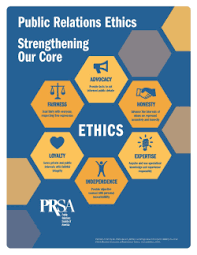Corporate Culture: Shaping Success in Today’s Business World
The Importance of Corporate Culture in Today’s Business Environment
Corporate culture plays a vital role in shaping the identity and success of a business. It encompasses the values, beliefs, behaviours, and attitudes that define how an organisation operates and interacts with its employees, customers, and stakeholders.
In today’s fast-paced and competitive business environment, corporate culture has become more critical than ever. A strong and positive corporate culture can drive employee engagement, productivity, retention, and overall business performance. It sets the tone for how employees collaborate, innovate, and deliver results.
Companies with a healthy corporate culture are more likely to attract and retain top talent. Employees are motivated to work for organisations that align with their values and provide a supportive work environment. A positive corporate culture fosters teamwork, creativity, and a sense of belonging among employees.
Moreover, corporate culture influences how customers perceive a company. A company with a strong ethical culture that prioritises transparency, integrity, and social responsibility is likely to build trust with its customers and enhance its reputation in the market.
Effective leadership is essential in shaping corporate culture. Leaders who embody the values of the organisation and lead by example can inspire employees to embrace those values in their daily work. They play a crucial role in fostering a positive work environment where employees feel valued, respected, and empowered.
Businesses that invest in developing a strong corporate culture reap long-term benefits such as increased employee satisfaction, improved performance, enhanced brand reputation, and sustainable growth. As businesses navigate through challenges and changes in today’s dynamic landscape, maintaining a healthy corporate culture remains key to driving success.
In conclusion, corporate culture is not just a buzzword; it is a fundamental aspect of modern business strategy. By prioritising the development of a positive corporate culture that reflects the values and vision of the organisation, businesses can create an environment where employees thrive, customers trust, and stakeholders believe in the company’s mission.
Essential Tips for Excelling in a Corporate Environment
- Maintain professionalism in all communications and interactions.
- Adhere to company policies and procedures consistently.
- Communicate effectively with colleagues and superiors.
- Strive for continuous improvement and professional development.
- Collaborate with team members to achieve common goals.
- Respect diversity and promote inclusivity in the workplace.
- Manage time efficiently and prioritise tasks effectively.
- Stay adaptable and open to change in a dynamic corporate environment.
Maintain professionalism in all communications and interactions.
It is crucial for businesses to uphold professionalism in all their communications and interactions. Maintaining a high standard of professionalism demonstrates respect, integrity, and reliability, which are essential qualities in building trust with employees, customers, and stakeholders. By conducting business with professionalism, companies can establish a positive reputation, foster strong relationships, and uphold the values that define their corporate culture. Consistent professionalism in all aspects of communication reflects a commitment to excellence and contributes to the overall success and credibility of the organisation.
Adhere to company policies and procedures consistently.
It is essential for employees to adhere to company policies and procedures consistently in a corporate setting. By following established guidelines and protocols, employees contribute to a cohesive and efficient work environment. Consistency in adhering to company policies helps maintain professionalism, ensures compliance with legal regulations, and promotes a culture of accountability within the organisation. Employees who consistently follow company policies demonstrate their commitment to upholding the values and standards set by the organisation, fostering trust and reliability among colleagues and stakeholders alike.
Communicate effectively with colleagues and superiors.
Effective communication with colleagues and superiors is essential in fostering a positive corporate culture and driving success within an organisation. Clear and open communication promotes collaboration, enhances teamwork, and ensures that everyone is aligned towards common goals. By sharing information, providing feedback, and actively listening to others, employees can build strong relationships, resolve conflicts efficiently, and contribute to a productive work environment. Effective communication with superiors allows for clarity in expectations, promotes transparency, and enables employees to seek guidance when needed. Ultimately, prioritising effective communication with colleagues and superiors lays the foundation for a cohesive and successful corporate environment.
Strive for continuous improvement and professional development.
In the corporate world, it is essential to strive for continuous improvement and professional development. By embracing a culture of ongoing learning and growth, employees can enhance their skills, knowledge, and expertise, ultimately contributing to the success of the organisation. Continuous improvement not only benefits individuals in their career progression but also drives innovation, efficiency, and competitiveness within the company. Investing in professional development initiatives demonstrates a commitment to employee growth and empowerment, fostering a culture of excellence and adaptability in today’s rapidly changing business environment.
Collaborate with team members to achieve common goals.
Collaboration with team members is a fundamental aspect of fostering a strong corporate culture and achieving common goals within an organisation. By working together towards shared objectives, team members can leverage their diverse skills, perspectives, and experiences to drive innovation, problem-solving, and overall performance. Effective collaboration not only enhances productivity and efficiency but also promotes a sense of unity, trust, and camaraderie among team members. When individuals come together to collaborate towards a common goal, they can achieve greater success collectively than they would on their own.
Respect diversity and promote inclusivity in the workplace.
In today’s corporate landscape, it is imperative to respect diversity and promote inclusivity in the workplace. Embracing diversity not only fosters a culture of acceptance and mutual respect but also brings a variety of perspectives and experiences to the table, leading to enhanced creativity, innovation, and problem-solving. By creating an inclusive environment where all employees feel valued and empowered, businesses can cultivate a sense of belonging and unity that drives collaboration and productivity across diverse teams. Prioritising diversity and inclusivity is not just a moral imperative but also a strategic advantage that can propel organisations towards greater success and sustainability.
Manage time efficiently and prioritise tasks effectively.
In the corporate world, managing time efficiently and prioritising tasks effectively are essential skills for success. By allocating time wisely to high-priority tasks and activities, professionals can maximise productivity, meet deadlines, and achieve goals efficiently. Prioritising tasks based on their importance and urgency allows individuals to focus on what matters most, leading to better time management and overall performance in the fast-paced business environment.
Stay adaptable and open to change in a dynamic corporate environment.
In a dynamic corporate environment, it is crucial to stay adaptable and open to change. Embracing flexibility and being willing to adjust strategies and approaches in response to evolving circumstances can help businesses thrive amidst uncertainty and rapid shifts in the market. By fostering a culture of adaptability, organisations can better navigate challenges, seize opportunities, and stay ahead of the curve in an ever-changing business landscape.






